
Thankfully, as I am raising my own children, a lot has changed, from our understanding of the science behind eco-friendly chemicals and products, to the products available to us as we seek to detoxify our homes and our world. And that’s a good thing: The average person spends 65% of their entire lifetime inside their home, according to a 2019 report from Harvard TH Chan School of Public Health, making it a frontline space in your quest to avoid exposing your family to unnecessary chemicals.
While the food industry has come a long way in creating transparency, this unfortunately isn’t the case with cleansers. In a 2011 study, researchers investigated 25 common cleansers, laundry supplies and personal-care products using gas chromatography and found they emitted 133 different volatile organic compounds (VOCs), 24 of which were classified as toxic or hazardous under US laws. The surprising parts? Only one of these compounds was listed in the ingredients, and products labeled “green” did not fare better than conventional ones.
Part of the problem lies in the scant regulation around ingredient disclosure. In the US, for instance, ingredients listed as “fragrance” aren’t required to be disclosed on some product labels and, in fact, can be made up of several hundred substances.
WHAT YOU CAN DO
Diese Geschichte stammt aus der January - February 2020-Ausgabe von Clean Eating.
Starten Sie Ihre 7-tägige kostenlose Testversion von Magzter GOLD, um auf Tausende kuratierte Premium-Storys sowie über 8.000 Zeitschriften und Zeitungen zuzugreifen.
Bereits Abonnent ? Anmelden
Diese Geschichte stammt aus der January - February 2020-Ausgabe von Clean Eating.
Starten Sie Ihre 7-tägige kostenlose Testversion von Magzter GOLD, um auf Tausende kuratierte Premium-Storys sowie über 8.000 Zeitschriften und Zeitungen zuzugreifen.
Bereits Abonnent? Anmelden
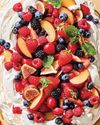
Summer Lovin'
Bushels of berries, peaches, nectarines, cherries, plums and more beckon at the market. Buy them all and soak up the sun in these bejeweled desserts.
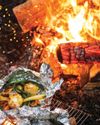
Into the Wild
Cooking along the 500-mile Colorado Trail taught Clean Eating editor Amanda M. Faison how to transform the campfire into a kitchen.
![[ Three Ways ] Tropical Punch [ Three Ways ] Tropical Punch](https://reseuro.magzter.com/100x125/articles/6144/994436/qSC8RoLOC1657772079105/crp_Hibiscus-Jamaican-sorrel-Recipes.jpg)
[ Three Ways ] Tropical Punch
Of African origin, hibiscus or Jamaican sorrel, is an important staple in West Indian and Mexican cooking. Hibiscus is sour enough to make you pucker and tropical enough to evoke the islands. Popularly brewed as a tea, the dried petals play well in savory or sweet recipes, too.
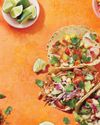
You Had Meat Tacos
"When it's done properly, taco should be a verb," declared Jonathan Gold, the late restaurant critic of the Los Angeles Times. Tacos are much more than a meal; they're an action.
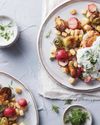
The Multitasker
Collagen usually makes headlines for its skin-saving benefits. But did you know that it's also an essential nutrient for joint health? (Especially if you sit at a desk all day.)
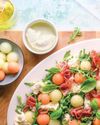
The Minimalist
Summer cooking is all about fresh and fast and avoiding the stove.
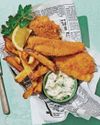
Lighten Up
If you've had an air fryer in your online cart since the start of the pandemic, it's time to commit. Let's just say it'll change your life.
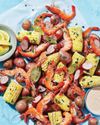
JUST RIGHT
The classic low-country boil is a celebration of place, tradition and ratio.
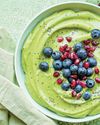
Recovery Days
The mantra that food is fuel is gold, but food as refuel is equally valuable.
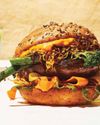
Lower your impact without sacrificing satisfaction.
Eat like a Reducetarian.